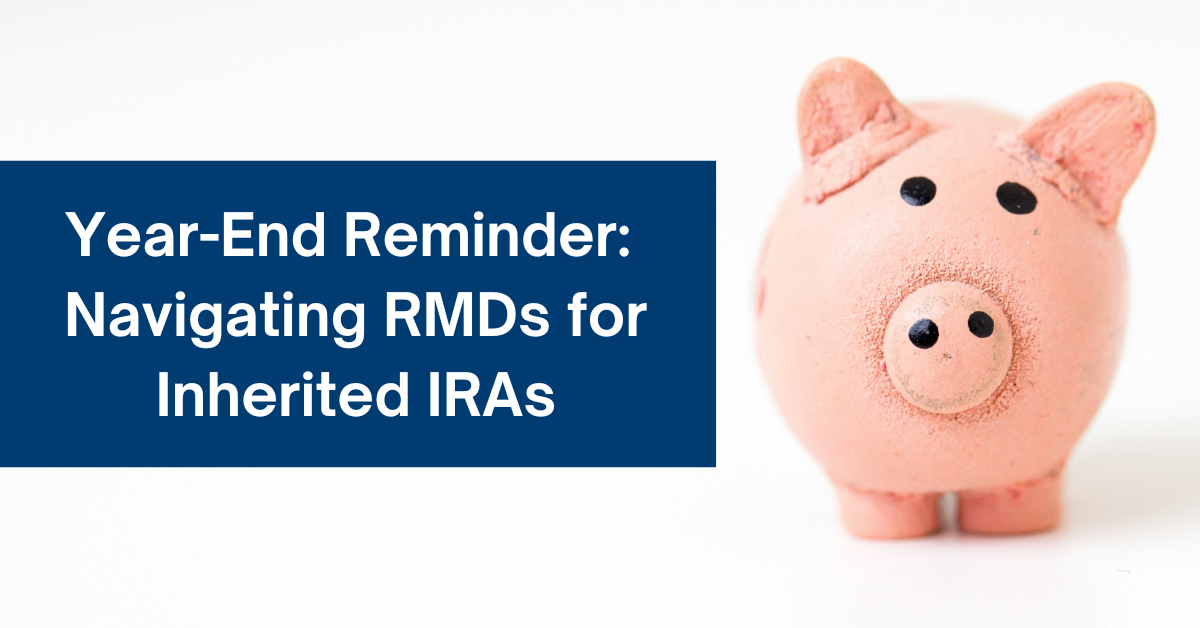Year-End Reminder: Navigating RMDs for Inherited IRAs
Fourth quarter is typically when we contact clients about satisfying their required minimum distributions (RMDs) from their IRAs & inherited IRAs ahead of the end-of-year deadline.
For those with inherited IRAs, keeping up with the most recent IRS guidance on required distributions is a little more complicated!
We wanted to remind you of a few requirements as we head into year-end:
Those individuals who inherited IRAs after 2019 are typically split into two distinct groups that determine which distribution rules apply to them: eligible beneficiaries (this is most spouses) & non-eligible beneficiaries (this is most children & non-spouses).
Eligible beneficiaries are typically able to “stretch” their inherited IRA distributions over their lifetime and do not have to fully deplete the account by the end of the 10th year.
Non-eligible beneficiaries are required to fully deplete the account within 10 years. For those non-eligible beneficiaries who inherited an IRA (after 2019) from someone who had already started their RMDs, annual distributions will be required in years 1 through 9.
In April, the IRS issued notice 2024-35, which effectively waived the penalty for non-eligible beneficiaries if they do not take a distribution in 2024. However, you will still be required to fully deplete the account by the end of the 10-year period. This can result in a large distribution in the final year, especially if minimal distributions are made during years 1 through 9.
For those who are not required to take annual distributions from their Inherited IRAs in years 1 through 9, the decision on when and if to take a distribution will depend heavily on your current and future tax situation.
If discussing your specific situation in more depth would be helpful, please contact us. We’ll be happy to discuss your options and requirements and guide you to an optimal distribution strategy.
Claire Holmes, CFP®
Financial Planner
--------
This article may not be copied, reproduced, or distributed without Compass Wealth Management’s prior written consent.
Compass Wealth Management is a Registered Investment Advisor. Advisory services are only offered to clients or prospective clients where Compass Wealth Management and its representatives are properly licensed or exempt from licensure. This article is solely for informational purposes and is not intended to be relied on as a forecast, research, or investment advice, and is not a recommendation, offer, or solicitation to buy or sell any securities or to adopt any investment strategy. The opinions expressed may change as subsequent conditions vary. The information and opinions contained in this material are derived from proprietary and nonproprietary sources deemed by Compass Wealth Management to be reliable, are not necessarily all-inclusive, and are not guaranteed as to accuracy. Past performance is no guarantee of future results. There is no guarantee that any forecasts made will come to pass. Reliance upon information in this material is at the sole discretion of the reader. Investments involve risks.


